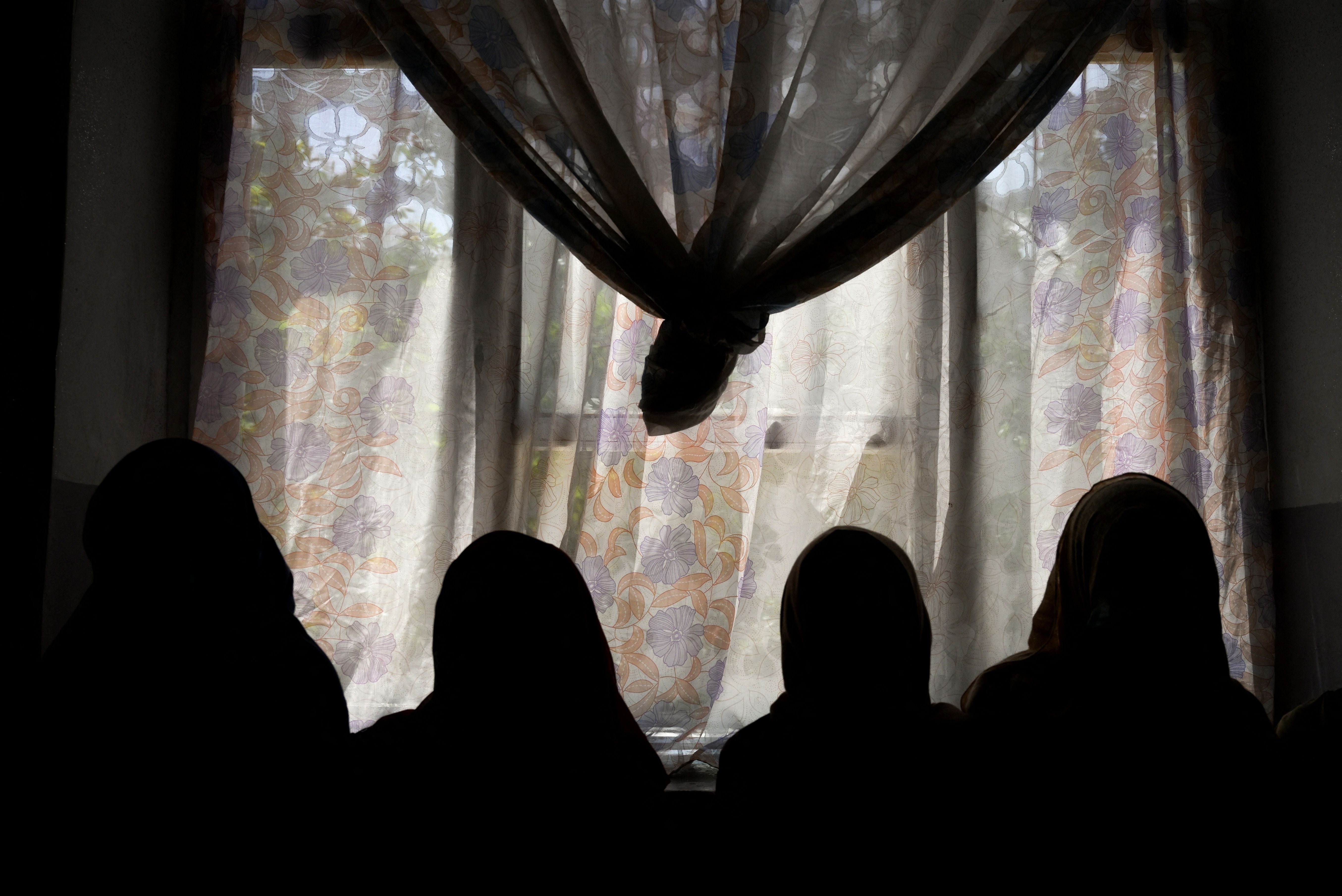The Taliban has destroyed education for women – but an underground ‘University of the People’ is fighting back
More than 2,500 Afghan women are risking their personal safety and battling power cuts and limited internet connectivity to study under the Taliban’s nose. Arpan Rai meets some of the students


Your support helps us to tell the story
From reproductive rights to climate change to Big Tech, The Independent is on the ground when the story is developing. Whether it's investigating the financials of Elon Musk's pro-Trump PAC or producing our latest documentary, 'The A Word', which shines a light on the American women fighting for reproductive rights, we know how important it is to parse out the facts from the messaging.
At such a critical moment in US history, we need reporters on the ground. Your donation allows us to keep sending journalists to speak to both sides of the story.
The Independent is trusted by Americans across the entire political spectrum. And unlike many other quality news outlets, we choose not to lock Americans out of our reporting and analysis with paywalls. We believe quality journalism should be available to everyone, paid for by those who can afford it.
Your support makes all the difference.For weeks now, Ferhana’s* education has remained a secret from the Taliban. In the privacy of her room, she joins virtual classes along with 2,500 other women to get the university education otherwise denied to her in Afghanistan.
After the Taliban shut down women’s colleges and universities in December last year – at gunpoint in some places – this online classroom has become the only place for women like Ferhana to meet and study literature, business administration and computer science, among other courses.
For her master’s degree in advanced teaching, Ferhana mostly uses the app Evernote to organise assignments and add reminders for submissions that are due at the “University of the People” – an American non-profit providing distance learning.
Afghanistan’s physical libraries are equally off-limits, meaning everything must take place online, she explains to The Independent. “I put more focus on reading online e-books and resources which are linked to libraries, and then I start working on assignments,” she says.
A former English language teacher at one of Kabul’s girls’ schools, Ferhana saw the dreams of her students shattered in August 2021, when the Taliban fighters rolled into the Afghan capital and declared the beginning of a new Islamist regime.
“The way my students looked at me with tears in their eyes, it was heartbreaking. The dreams all of these girls and women had for education died inside,” she says over a phone call. She is among the lucky few who at least have a formal bachelor’s degree in hand – most of her students had to leave school before they had completed their secondary education.
“Around 10 to 12 of my minor students are now married. They cannot work or support their families any more,” she says.
Before the fall of Kabul, the online university had around 300 students from Afghanistan, of whom 90 per cent were men. After August 2021, it received 21,000 applications and granted more than 2,500 scholarships to women to continue their academic pursuits.
Ferhana is joined by Hamdiya*, a former journalist and social activist with a master’s degree in international relations, majoring in peace and diplomacy. She worked as a journalist in the parliament of Afghanistan during the Ashraf Ghani administration.
Hamdiya was unable to escape via the flurry of flights leaving the country in August 2021. She finally heard about women managing to study and take examinations on a group chat the following year.
“It felt like a good opportunity for those who were desperate to continue their education despite what was going on in Afghanistan,” she tells The Independent.
She now mostly conducts her studies during the night, finding it easier to keep her secret under cover of darkness.
“Sometimes I wish I was studying at that university physically rather than online, because of our conditions here. Whenever I hear some bad news, I just keep thinking about it and then I am unable to go online and pretend to study,” Hamdiya says.
Hamdiya, who was a global peace ambassador in the Global Peace Chain community, says she was previously a campaigner for education in rural areas while honing her skills in writing and research about the empowerment of women and girls.
Her views on gender equality took her to national and international conferences.
But now, under the watch of the Taliban, she finds safety in the midnight classes and comfort in her curriculum at the University of the People. It’s what keeps the 26-year-old going.
“Even when some of us ask the Taliban about reopening our schools and classes, they ask us to wait. We don’t know the exact time,” she says.
The Taliban shut down schools for girls above sixth grade in March 2022, and colleges and universities for women in December last year.
Like Hamdiya, Kinaaz* – who is pursuing a bachelor’s degree in business administration at the virtual university – is fighting a number of mental battles.
“I feel lucky to have this opportunity to study, even in this difficult situation. However, sometimes depression hits my brain and I feel lost,” she says.
Alongside the threat to their personal safety if the Taliban were to discover their studies, there are plenty of practical problems involved in online learning in Afghanistan. The women need steady electricity and fast wifi – deemed to be luxury items among their circles.
“Sometimes lack of internet and electricity makes things hard,” Kinaaz tells The Independent.
While Hamdiya is paying 1000 AFN (£9.24) for 50 days of internet, Ferhana spends 2500 AFN (£23) per month.
“Sometimes, we see 15 out of 40 women attending classes – some of them log in using their father’s or brother’s cellphone. The internet does not always work,” Ferhana says.
Her fellow student Hamdiya says she has seen five or six girls drop out and give up on education as a result of these infrastructure challenges.
The university’s president, Shai Reshef, acknowledges the difficulties his students from Afghanistan are facing, particularly in terms of the basics like power and internet.
“Life gets in the way when you are doing things, but if you are an Afghan woman, it will get in your way a lot more,” he tells The Independent.
As soon as the Taliban regained power in Afghanistan, Reshef says, he worried for the future of millions of women. “We all have heard these stories years ago. In August we worked on a plan to make education tuition-free for as many Afghan women as possible.”
He gives a warning to the Taliban of the dark future their edicts will bring for the country. “You have banned half of your population from entering schools and colleges. What do you think your country will look like in 20 years?” he asks.
Hamdiya is living this anxiety. “Even if I manage to finish this course, I do not have the means to flee my country for a job abroad and provide my family [with] a secure life.
“To travel abroad, the Taliban will ask me to be accompanied by a mehram [male guardian].”
Similar grievances raised in the emails Reshef receives from women, some of whom are even seeking evacuation, have made him work towards a solution that would help them. “We are looking to provide these women with some job internships and tie-ups with foreign organisations, so that the road doesn’t end at graduation.”
*Names changed to protect identities





Join our commenting forum
Join thought-provoking conversations, follow other Independent readers and see their replies
Comments